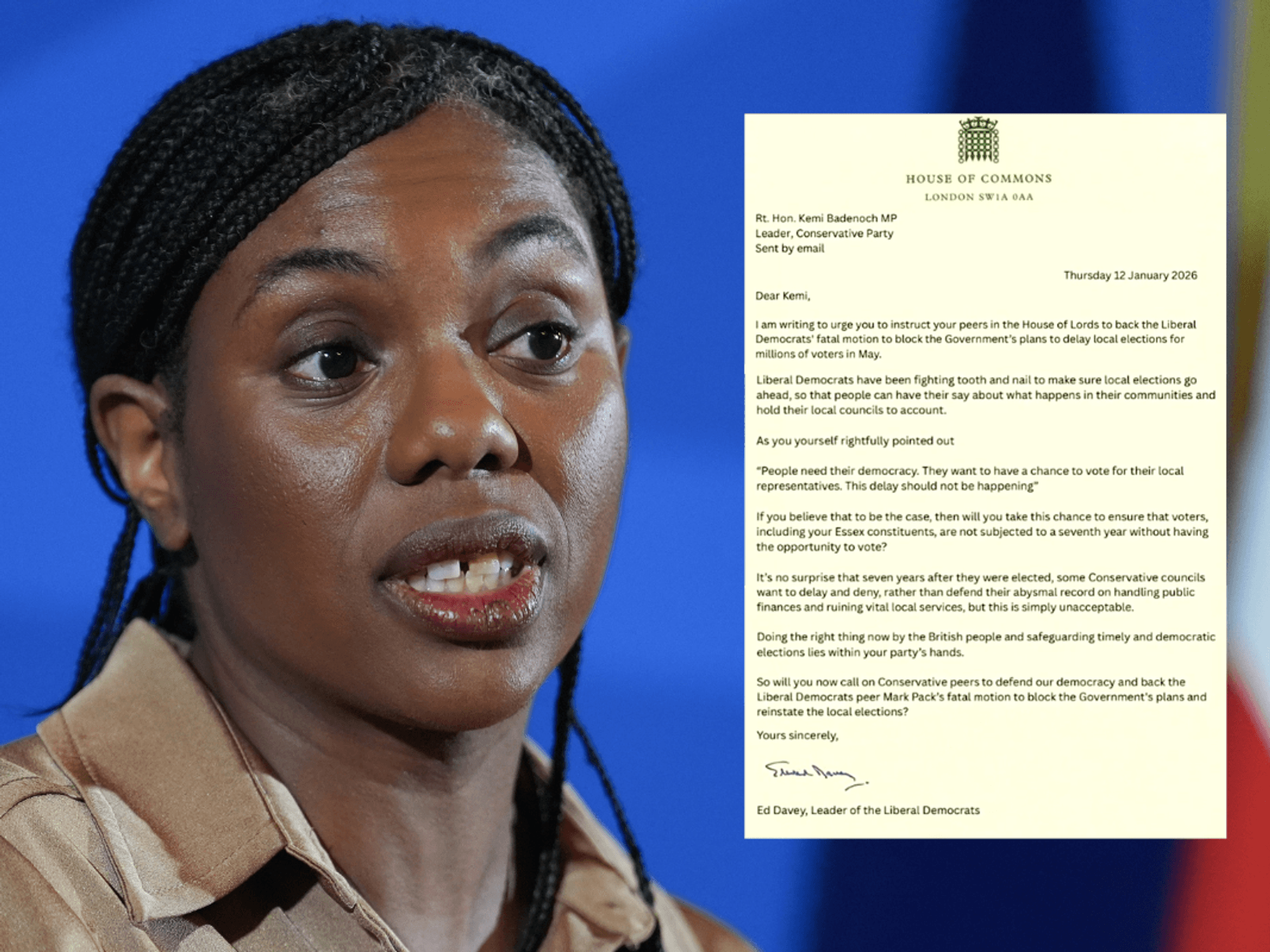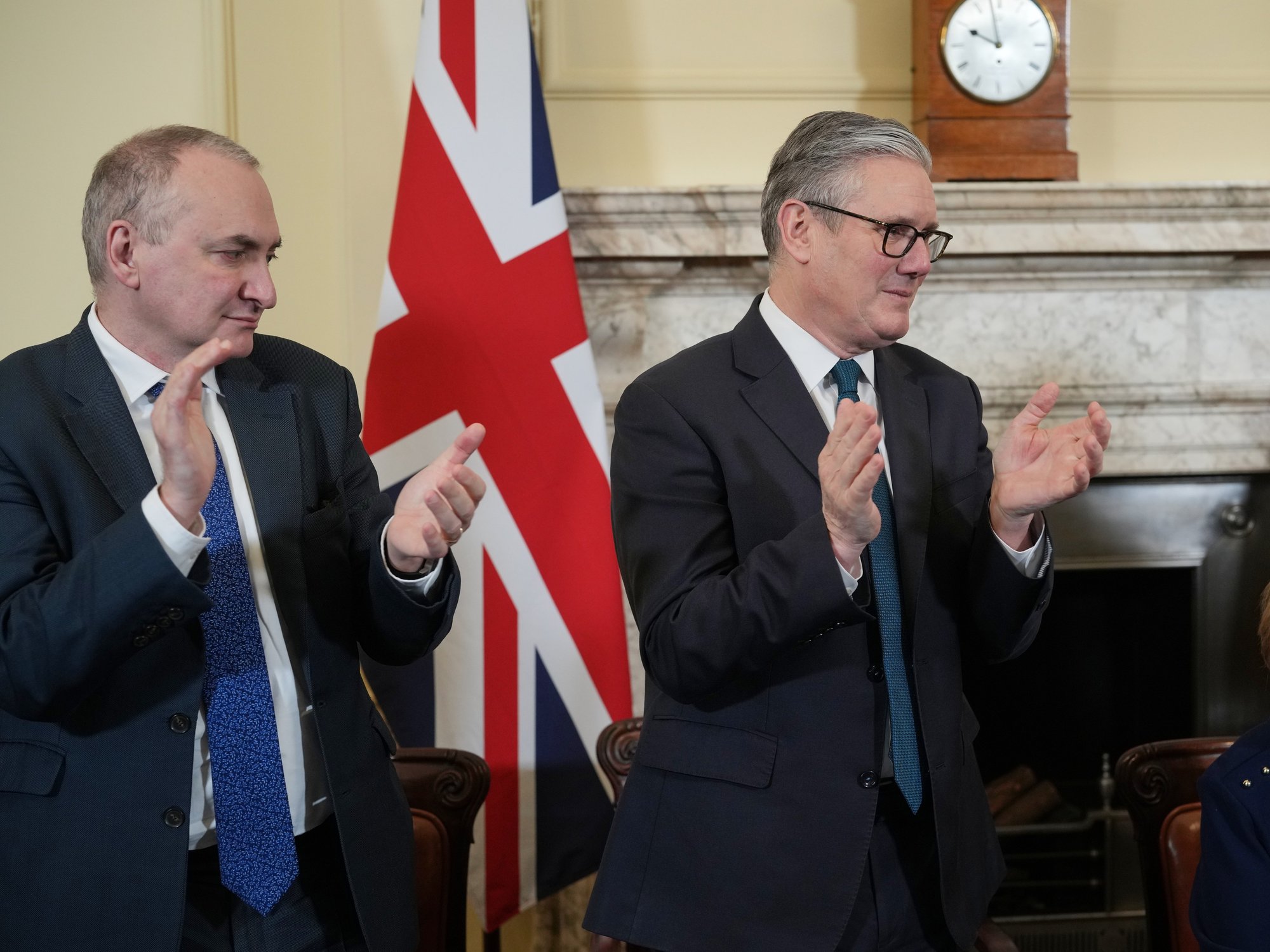Heathrow boss slept through 7 HOURS of airport blackout chaos because phone was on silent
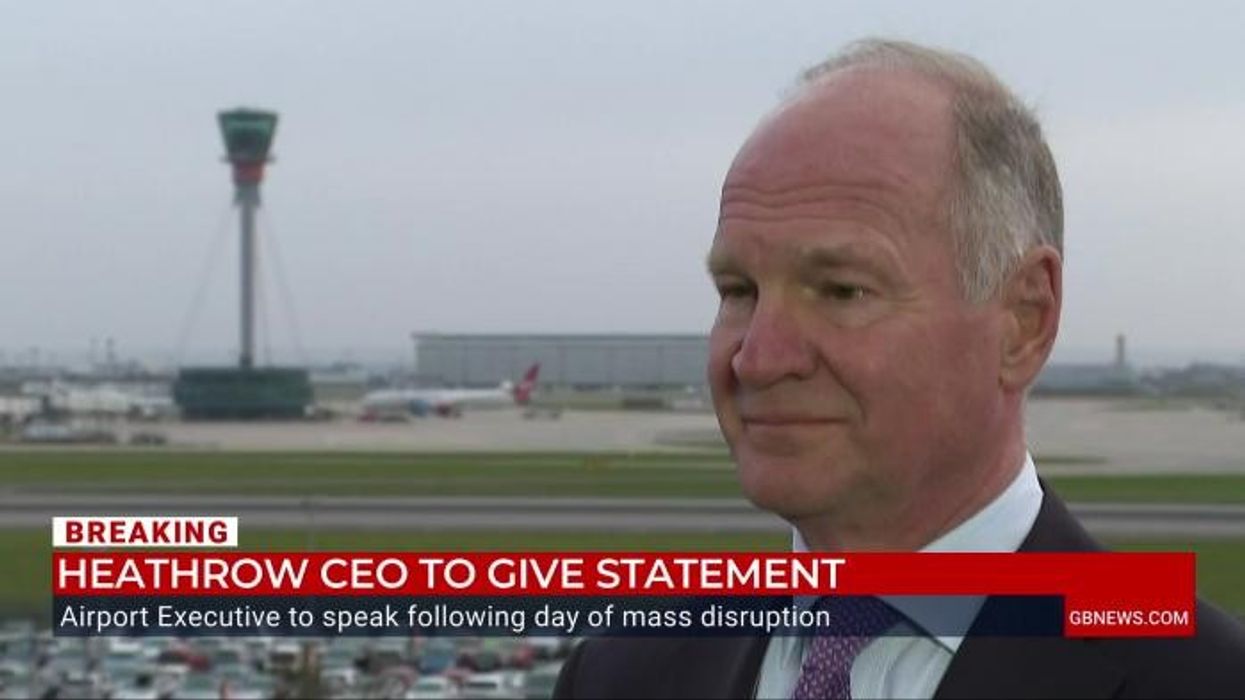
WATCH: Heathrow Airport CEO issued an apology following the 'major unprecedented incident'
|GB News

The power outage left some 200,000 passengers stranded around the world after thousands of flights were grounded
Don't Miss
Most Read
Trending on GB News
Heathrow's chief executive Thomas Woldbye slept through the first seven hours of the airport's major power outage on March 21 because his phone was on silent mode, an internal review has found.
The £3.2 million-a-year executive had left his device on his bedside table before going to sleep, but it had switched to silent mode without his knowledge, making him unreachable as the crisis unfolded.
Fellow executives initially could not reach Woldbye following a substation fire which knocked out power to the airport at about 11.55pm.
The chief executive remained unaware of the shutdown until about 6.45am the next morning, according to a review by former transport secretary and Heathrow board member Ruth Kelly.
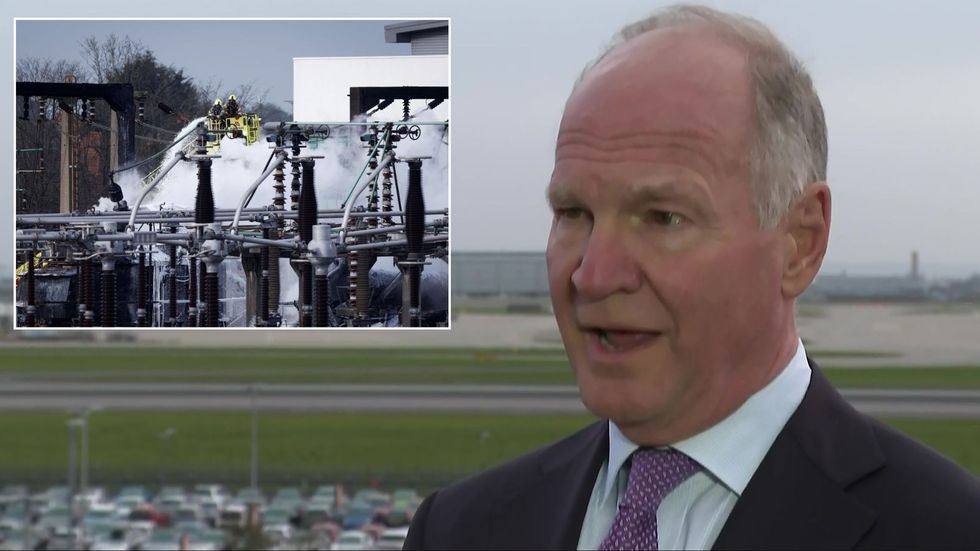
Heathrow's chief executive Thomas Woldbye slept through the first seven hours of the airport's major power outage on March 21 because his phone was on silent mode, an internal review has found
|PA/ Getty
News coverage of the chaos had been broadcasting for several hours before Woldbye woke up.
The power outage left some 200,000 passengers stranded around the world after thousands of flights were grounded.
The substation fire in Hayes, West London, caused Heathrow to shut down for 24 hours.
The fire destroyed both the primary and backup systems of the power transformer, severing one of the three main grid lines supplying the airport—an incident grid operators called an "unprecedented" failure.
Initial reports claimed that Woldbye chose to go to bed after first being informed of the power outage, but the review concluded this was "not correct."
In Woldbye's absence, Javier Echave, the airport's operating chief, was left to chair crisis meetings after trying to call the chief executive repeatedly by phone.
LATEST DEVELOPMENTS:
Echave gave the order to close the airport to all traffic for the rest of the day.
Kelly's report noted: "Mr Woldbye expressed to us his deep regret at not being contactable during the night of the incident."
The review committee recommended that Heathrow consider enhancements to the notification process for critical incidents, including options for notifying key individuals via a second means of contact for significant incidents.
Heathrow had already taken steps to ensure the chief executive could be contacted via alternative means in future, the review found.
Following the shutdown, angry airlines condemned the decision to declare a full-day closure and argued that the airport should have been better prepared.
Shai Weiss, the boss of Virgin Atlantic, also criticised Woldbye's "questionable" handling of the incident.
"I know what I would have done. I would have rushed to the airport at that moment. All CEOs are geared for that," Weiss said.
"You lead from the front and then you delegate back. I believe if Thomas had the opportunity again he would act differently, but that's a question for him."
Airlines and experts questioned how Europe's biggest airport was plunged into darkness by the failure of a single electricity substation.
A preliminary report from the National Energy System Operator revealed that the fire originated in a 57-year-old electricity transformer and then spread to an adjacent unit. A third, more modern transformer subsequently overloaded and shut down.
Kelly explained that Heathrow had considered the complete failure of one of its three power lines a "low likelihood event," as staff had been assured of the substation’s built-in redundancies, managed by National Grid and SSE Networks.
Nevertheless, it was understood that the loss of any one of the three power lines could result in a shutdown lasting a minimum of eight hours.
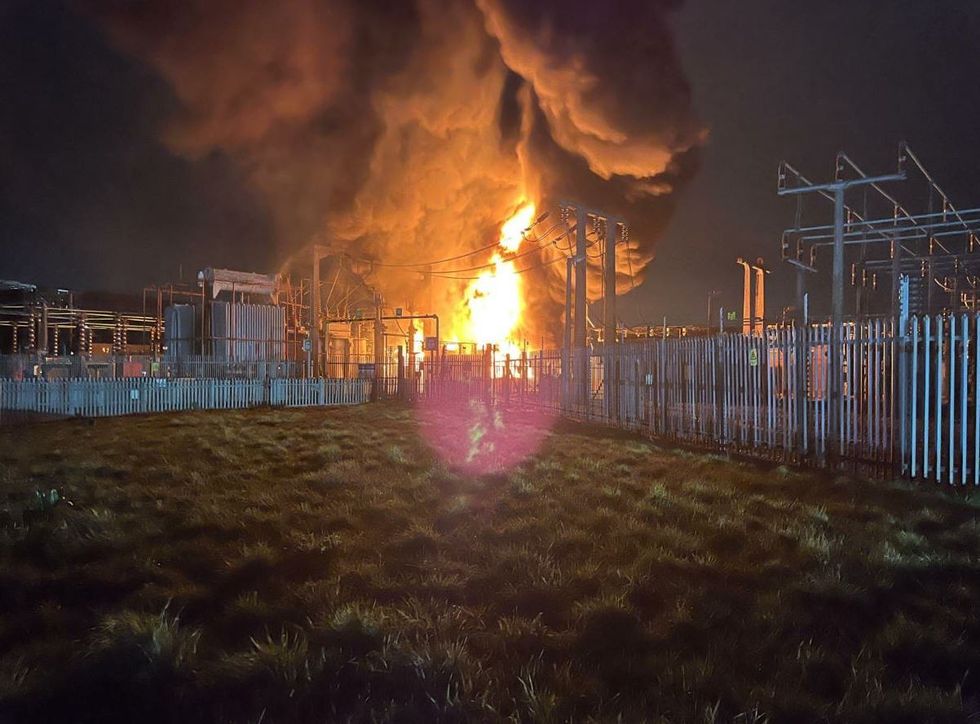 The fire broke out just two miles away from Heathrow Airport | LONDON FIRE BRIGADE
The fire broke out just two miles away from Heathrow Airport | LONDON FIRE BRIGADE"This is a result of the way the infrastructure at the airport has been developed over 75 years," the review said.
"There is no immediate fix to this problem, in part because the airport is operating at full capacity with only limited operational overnight windows to carry out works to improve resilience and within a highly constrained footprint."
The National Grid has told Heathrow that a direct line to the national network may not be available until 2037 at the earliest.
More From GB News





